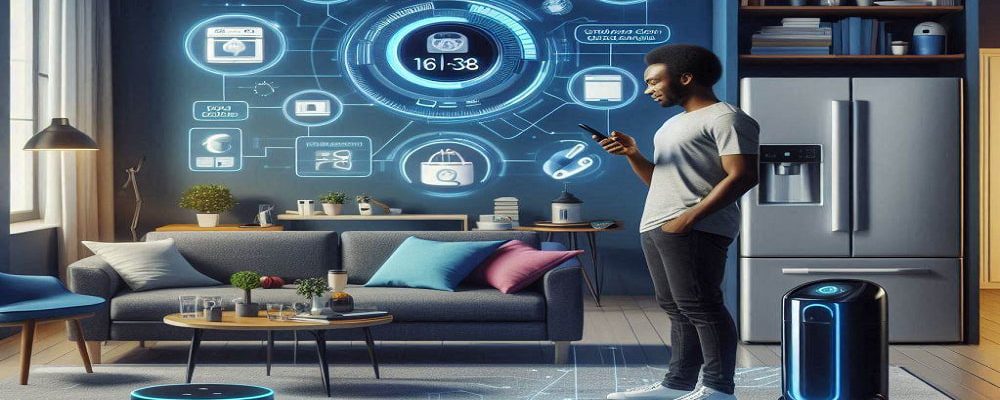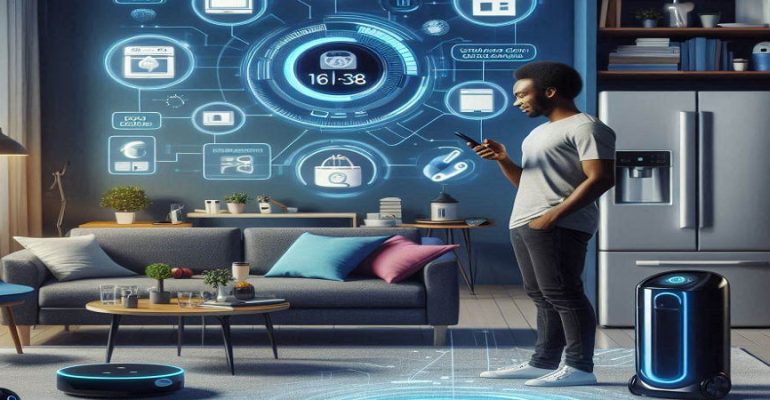
Rejigging App Development for IoT

Rejigging App Development for IoT
In the ever-flourishing technology, the blend of mobile app development and the Internet of Things (IoT) has led the way to a new era of convenience and connectivity. As these technologies advance, the demand for efficient and effective development and testing processes has become more critical than ever. Enter low-code platforms and specialized mobile app testing services, which are transforming the way we approach mobile and web app development.
The Rise of IoT and Its Impact on Mobile App Development
IoT has restructured the way we interact widely around us. From smart homes to connected cars, IoT devices are becoming integral parts of our daily lives. This explosion of IoT devices has driven the need for robust mobile applications that can seamlessly integrate and manage these devices. Mobile app development in this context involves creating applications that can communicate with various IoT devices, gather data, and provide users with real-time insights and control.
However, developing such applications comes with its own set of challenges. The diversity of IoT devices, the need for real-time data processing, and ensuring security and privacy are just a few of the hurdles developers face. This is where mobile app testing services play a decisive role. Specialized mobile app testing companies are equipped with the tools and expertise to ensure that these applications are reliable, secure, and perform optimally under various conditions.
The Role of Low-Code Platforms in Simplifying Development
Low-code development platforms are gaining traction as a solution to the complexities of traditional mobile app development. These platforms provide a visual development environment where developers can build applications using pre-built components and templates, significantly reducing the amount of hand-coding required. This approach not only speeds up the development process but also makes it accessible to a broader range of people, including those with limited coding experience.
For IoT applications, low-code platforms offer several advantages. They allow developers to quickly prototype and iterate on ideas, integrate with various IoT devices through pre-built connectors, and leverage cloud services for data storage and processing. This rapid development cycle is particularly beneficial in the fast-paced world of IoT, where time-to-market is critical.
Ensuring Quality with Mobile App Testing Services
As mobile applications become more complex, the need for comprehensive testing becomes paramount. Mobile app testing services specialize in evaluating the functionality, performance, and security of mobile applications. These services use a combination of manual and automated testing techniques to identify and address potential issues before the app reaches end-users.
A reliable mobile app testing company will conduct various types of testing, including functional testing to ensure the app behaves as expected, performance testing to assess how the app performs under different conditions, and security testing to identify vulnerabilities. By leveraging these services, developers can ensure that their applications provide a seamless user experience and are resilient against potential threats.
Web App Development and Testing in the IoT Era
While mobile applications are central to the IoT ecosystem, web applications also play a crucial role. Web apps allow users to monitor and control IoT devices from any browser, offering greater flexibility and accessibility. Web application development companies are at the forefront of these robust and scalable solutions.
The development of web applications for IoT involves creating responsive and intuitive user interfaces, integrating with various IoT platforms, and ensuring real-time data synchronization. Top web app development companies leverage modern frameworks and technologies to build applications that are not only functional but also user-friendly and visually appealing.
Just like mobile apps, web applications require rigorous testing to ensure they meet the highest standards of quality. Web application testing services focus on evaluating the app’s performance across different browsers and devices, checking for compatibility issues, and ensuring data security. By partnering with web application testing services, developers can deliver reliable and efficient web apps that enhance the overall IoT experience.
Practical Applications and Success Stories
The combination of mobile app development, IoT, and low-code platforms is driving innovation across multiple industries. Here are a few examples of how this trifecta is making a tangible impact:
Smart Homes:
Companies are using low-code platforms to develop mobile apps that allow users to control various smart home devices from a single interface. This includes adjusting lighting, monitoring security cameras, and managing energy consumption.
Healthcare:
In the healthcare sector, low-code solutions are enabling the rapid development of mobile apps that connect with wearable devices. These apps can monitor patient health metrics in real-time, facilitating remote patient care and timely interventions.
Manufacturing:
Industrial IoT applications are benefiting from low-code development by creating mobile dashboards that provide real-time insights into machinery performance and production metrics. This helps in predictive maintenance and optimizing operational efficiency.
Agriculture:
Farmers are leveraging mobile apps developed on low-code platforms to monitor soil conditions, weather patterns, and crop health through IoT sensors. This data-driven approach enhances decision-making and boosts crop yields.
The Future of Mobile and Web App Development in IoT
The convergence of IoT, mobile, and web app development is creating new opportunities and challenges for developers. Low-code platforms and specialized testing services are empowering developers to build and deploy high-quality applications faster and more efficiently. The need for innovative development and testing solutions will only grow as IoT continues to evolve.
By embracing these advancements, developers can stay ahead of the curve and deliver applications that provide users with seamless connectivity and control over their IoT devices. The future of mobile and web app development in the IoT era is bright, promising a more connected and convenient world for all.
In conclusion, the integration of IoT with mobile and web app development is revolutionizing the tech landscape. Leveraging low-code platforms and partnering with mobile app testing companies and web application testing services are key strategies for ensuring the successful deployment of robust and reliable applications. As we move forward, these technologies will continue to drive innovation and enhance our connected experiences.